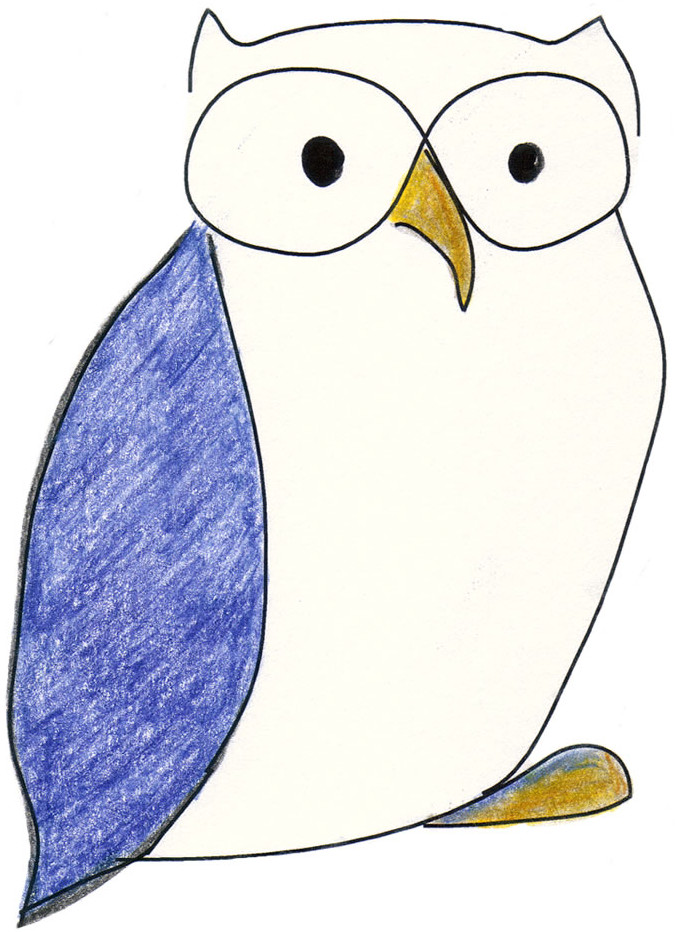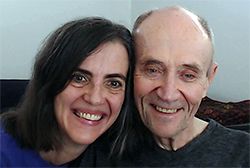Just One Look Forum Archives
Recovery and Rehabilitation
Hi, it has been 2 years since I first did the looking. I do see a lot of changes. Lifelong issues have been dissolved. For example, social fear is much reduced, maybe by 80%. And I am grateful for that. Ocassionally (but much less frequently), I still have strong but vague feelings of impeding doom, of having failed at something. However, when these states arise, there are initially no thought patterns associated to them. This feeling, or whatever I could name it, is present before thoughts. In such moments, directing attention to breathing helps to shorten these periods, before the mind kicks in to amplify and prolong these states. So, it seems to me that not everything happens in the mind. There is a deeper level where fear exists (in the body, in deeper levels of the brain, maybe the amygdala) before it rises to the mind. Can anyone relate to that?
Hi Cytex, yes, very much so. As I read what you say about impeding doom I realize I always had that feeling and now its gone. Hum. As a child born with this fear and then living with other people always acting out in the context of fear the body starts to tense up naturally as a means of protection I suppose and of course crazy paranoia sets in too. The vital free flow of energy is blocked, so the fears provoke feelings of anger, sadness, confusion, etc. and these feelings multiply. Does the thought always come first or the sensation? I read somewhere there is always a thought first. It seems so many waves of feeling pass through me which don't seem related to any thought but now I don't really concern myself as much. For a long time I had very strong emotional reactions and now I seem to have a more gentle awareness of thoughts sensations which feel tense, fearful. I came to the looking after 30 years of work on the body, releasing emotions, etc. so I know it's all very connected. However what the looking does is dissolve the context of fear at the root of the problem so the recovery period although very difficult at times reaches deeper places in me. More subtle healing (for lack of a better word) of my nervous system. I am always interested in this subject you bring up and not too often discussed here so it would be interesting to hear how others feel.
Thank you, Maureen. If I remember correctly, you have also been suffering from the fear of annihilation. In my case, this fear was gone immediately after the first looking. Frankly, it is my conviction that fear of life exists in the body independent of the conscious mind. I agree that the looking will reach these places too.
The standard psychological answer is that thoughts and beliefs come before emotions. They may be unexamined, unconscious beliefs, but they would come first. I too question this assumption, although I think it's mostly accurate, and I believe I remember John saying that fear can be pre-cognition, but I'm not sure. Maybe he can weigh in on that.
I also agree with Maureen that it kinda doesn't matter. Once the fear is gone, it's gone. There does seem to be a deeper level that fear sinks to, below the mind, and which the looking meets and nullifies. I think of it as 'me' being at the core of things and the looking allows me to radiate outward and upward, eliminating fear as it moves through the system and healing as it goes. The healing seems delayed in some areas but it happens eventually. I also have recovered from social phobia, generalized anxiety, depression, to name a few.
I found different answers on this topic. A cognitve psychologist would agree that beliefs come first, a trauma therapist or neuroscientist might not. I find views that unify biology with psychology the most fruitful. However, it might not matter in the end as the looking works anyway.
You're right, Cytex. That was what I was trying to say. I think cognitive theory tends to be the prevailing and most used modality, but you're right, the repression/trauma and psycho-dynamic theory is still strong. And I agree, it doesn't really matter to us lookers.
Hi, I am interested by the discussion. I recently had the experience of the neurotic fear of not being accepted, arise in a really safe place, just because I got really physically cold and could not find a way to get warm for a couple of hours and then I became convinced that everything had changed. It was quite astonishing. It seems that revealing the ease of being that I now live in has a shadow that just has to arise and any trigger will do. It just makes me so happy that I live in ease most of the time. Love to you all.
Perhaps the cold triggered a survival mechanism that felt like anxiety. A deep rooted need to compete with others for resources? I have experienced this as well for short periods of time. I think the key is that it is time-limited and we can return to ease fairly quickly. I even find these experiences interesting.
Nice to see you here again, Helen. Your video report is one of my favorites.
I will refrain from training focused attention extensively. For me, there is an inherent danger of suppressing unwanted shadow states, and likewise delaying recovery. To the contrary, I want to fully experience and welcome whatever sensation arises in my body. I trust it is here for a reason, and without the fear of life I can deal with it with empathy and courage.
I don't share your opinion on training focused attention. The inclination to stay with experiences, whichever way you view them, seems a fear-based mechanic of the mind and pointing out such experiences being here for a reason only emphasizes it. Deliberately moving attention away from that which you call unwanted states is not going to hinder or delay your recovery, on the contrary.
For me the moments of clarity, which are undoubtedly affecting the direction of my life more and more, only arise spontaneously, seemingly out of nowhere. And by practicing attention these little epiphanies don't only surface more frequently but they also deepen and become more meaningful and impossible to ignore. As soon as I go looking for them in my experience I am actually standing in my own way.
This practice of focused attention is not at all what I imagined it to be. Who would have thought I would ever quit using cannabis because I wanted to. Nothing is a struggle after having seen clearly what needs to be done or not done. I think it's impossible to deny the truth once it is seen in a fear free context. The way forward becomes obvious, a non-issue really.
I hope I didn't misinterpret your sentiment. Also I realize this posting is kind of dry, sorry about that. It's late and I'm tired but I really wanted to post this because I have been thinking about it and would like to know what you and others think!
Best wishes!
Thanks, roed! I agree the ability to direct attention is useful, and I apply it often. However, deciding not to attend to sensations and experiences in the body can be the perfect excuse of a fear-based mind to avoid issues that actually benefit from or need attention. So it is actually the opposite of what you say: a fear-based mind tends to avoid dealing with all life brings, that is, all sensations that arise in the body. Instead, a fear-based mind applies selection and censorship. This happens involuntarily. Therefore, I tried to do the opposite, in a self-reliant way. Instead of declining to attend to certain sensations, I embrace them all. However, importantly, I do not identify with them. I just witness and acknowledge whatever arises, whatever happens in me, like a host would welcome guests that come and go. This is how I decided to use my attention.
As a result, the limbo state that I (and apparently many others) experienced is now gone. I feel more energy. So it works for me. I will see where this lead to.
Thanks for clarifying, Cytex! Actually there might not be a conflict here between what you and I are saying to begin with. What I meant to point out is my improved ability to see clearly what is true in each moment rather than following the analytical thoughts that arise out of circumstance, and that by doing so the issues seem to resolve themselves given some time. I attribute this improvement to the practice of focused attention. So maybe your objection, although quite minute, struck a nerve with me. After all, the looking offers us a life of unmediated self-reliance so there is no way to do it wrong, to do the life wrong.
I absolutely agree with the OP as well. The thoughts are a consequence of some feeling which is already there, like ripples on a pond after a stone is tossed. And they are not good nor bad, just not relevant.
roed, and even if there is a conflict, it is fine. The working model seems that mechanisms in us are diseased because they evolved in the context of the fear. And that one needs to starve them, deprive them of our attention, to give room to sane mechanisms that arise. Formally, from the outside, this concept makes sense. However, it brings the tendency to sort what is in us into old-fear based, and new, sane. And this promotes suppression of shadows, and can prolong recovery. I decided to embrace everything that arises in me. There is no need to selectively deprive certain sensations of our attention, because they were born in a context of fear. After the looking, there is nothing to be feared - so why not deal with whatever is in us? Of course, I am not talking about intellectualising, or identifying with concepts, but welcome the sensation before they manifest as language or concepts.

